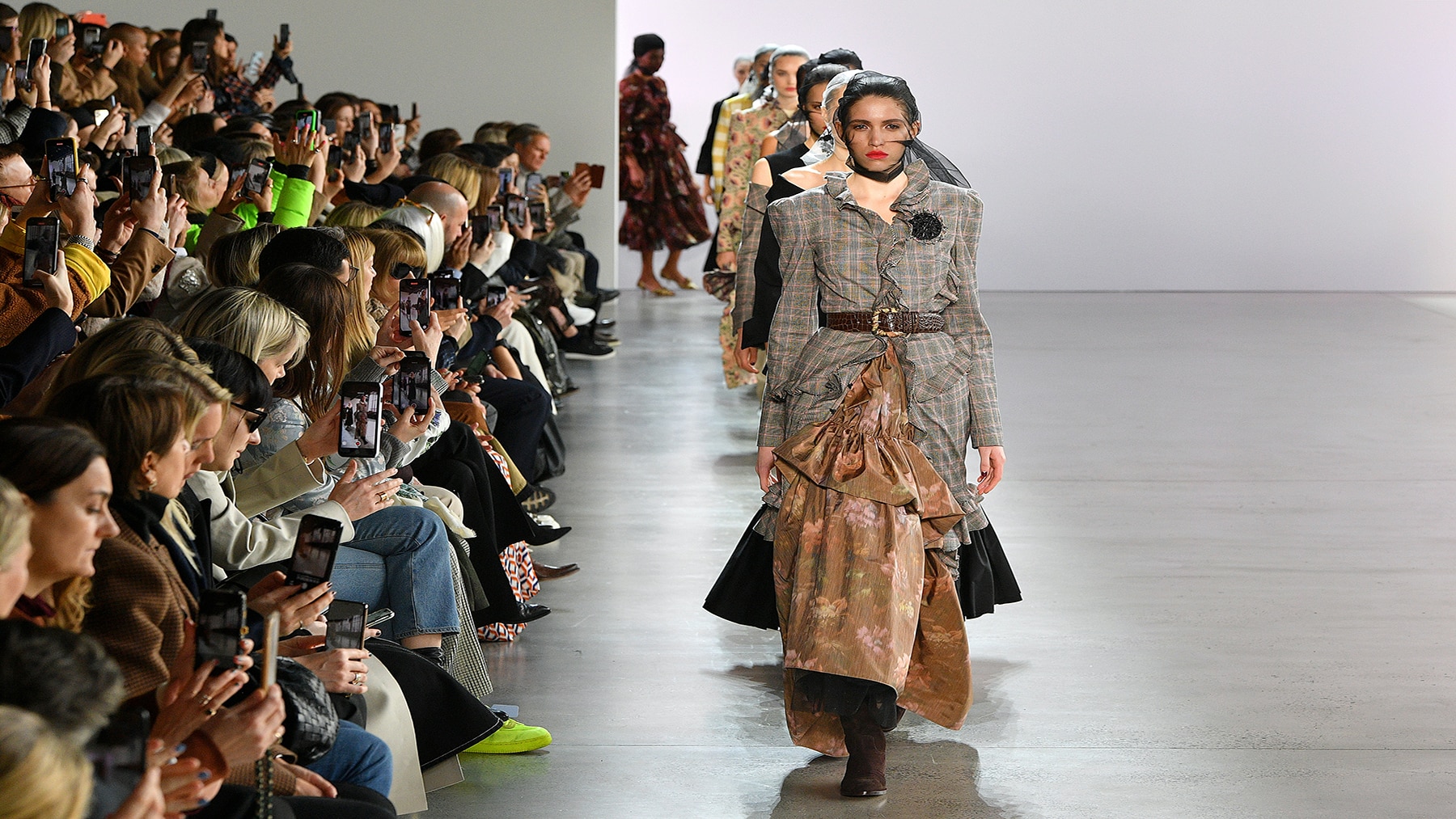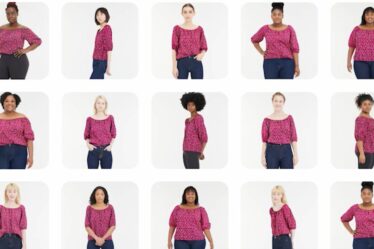
Brock Collection, the Los Angeles-based line known best for its romantic, baroque-inspired designs favoured by stars like Meghan Markle and Margot Robbie, is the latest American label in limbo.
The label has not released a ready-to-wear collection in a year, is no longer working with several of its wholesale partners, including Moda Operandi, Net-a-Porter and Forty Five Ten and has not posted to its Instagram account since October 2021. Its relationship with licensing partner HIM Co. ended last year as well.
“I’ve confirmed with our buying team that sadly we are not carrying Brock Collection for the upcoming season or the foreseeable future,” said a Moda Operandi representative. “Our understanding is that the brand is not currently producing collections and/or are on a pause.”
The pause comes just months after Brock Collection created two capsule collections. It released a collaboration with Swedish retailer H&M in June and bridal platform Over the Moon in October. H&M declined to comment. Over the Moon founder Alexandra Macon said in an email the collaboration “resulted in a strong sell through that’s exceeded our high expectations.”
Questions around the operating status of the brand have swirled for months, particularly as Brock Collection, the 2016 CFDA/Vogue Fashion Fund prize winner and a New York Fashion Week must-see, sat out both in-person and virtual fashion weeks in 2021 (its last runway outing was in February 2020).
Kristopher Brock and Laura Vassar, then husband and wife, founded Brock Collection in 2014. Wholesale relationships with retailers including Neiman Marcus, Saks Fifth Avenue, MatchesFashion and Ssense soon followed. For retailers like niche fashion curator Forty Five Ten, Brock Collection was a top vendor, a representative for the store said, catering to clients across the US and particularly in Texas, where the store is based and shoppers gravitated towards sumptuous and soft garments tinged with Victorian and Western cues.
In 2018, Brock Collection signed an exclusive licensing agreement with Onward Luxury Group, now High Italian Manufacturing or HIM Co., which once owned the rights to Jil Sander and in the past had manufactured products for Mulberry, Proenza Schouler and Nina Ricci. The agreement was borne in an effort to expand Brock Collection’s presence in Europe, Russia and the Middle East. But one of the company’s American managers confirmed to BoF that Brock Collection’s partnership with HIM Co. ended in 2021.
Brock and Vassar filed for divorce in 2019. Brock declined interview requests.
It’s difficult enough as is for independently-owned brands to survive. Adding a pandemic to the mix means that every business decision — like how and when to pivot categories — has an outsized impact. Take Christopher Kane: the British label broadened its offerings by creating the “More Joy” lifestyle brand subsidiary. More Joy slogan t-shirts and other products retailed for $500 or less, a far more accessible entry point for shoppers compared to the brand’s $1,700 pleated dresses.
Brock Collection’s last ready-to-wear collection, released in March 2021, focused on looser silhouettes and fabrics that emphasised comfort, albeit at steep prices, like $1,340 for a wool-blend midi dress or $940 for a pair of printed denim jeans.
During the pandemic, shoppers reconsidered where they spent their money, “resulting in a humbling reset of who this customer is and how many brands can realistically exist in this space in a profitable way,” said Elise Saetta, associate director of New York University’s Stern School of Business’ fashion and luxury MBA program.



